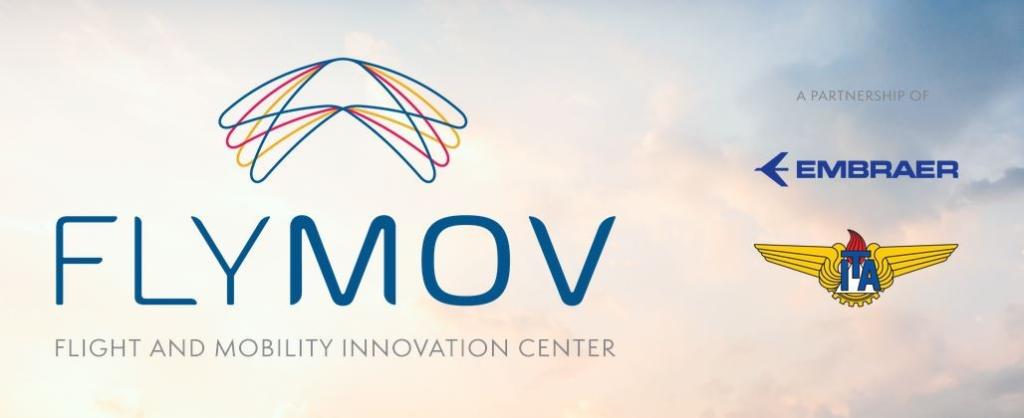
Engineering Research Center for Air Mobility of the Future - Flymov
Texto em português
The Engineering Research Center for Future Air Mobility (Flymov) aims to offer the national aeronautical industry scientific and technological knowledge, enabling it to overcome the challenges in shaping air mobility in the coming decades.
The main challenges are:
• Reduction of pollutant and noise emissions,
• Increased efficiency of manufacturing processes,
• New aircraft configurations for operation in urban environments and short-haul flights.
In the first phase, five lines of research were defined:
• Control of Electric Propulsion Machines;
• Aeropropulsive Integration in Electric Aircraft;
• Decision-Making Methods in Autonomous Systems;
• Advanced Design for Metallic Additive Manufacturing;
• Intelligent Final Assembly of Aircraft.
Each of the research lines involves teams of more than 120 researchers from the Instituto Tecnológico de Aeronáutica (ITA), Universidade Estadual de Campinas (Unicamp), and Universidade de São Paulo (USP), engineers with strong experience at Embraer and undergraduate and graduate scholarship holders in long-term projects.
The Center receives funding through an agreement between FAPESP and Embraer.
The researcher responsible for Flymov is Prof. Dr. Domingos Alves Rade from ITA.
Flymov 's website is https://www.flymov.com.br/
Project Launch at FEEC/Unicamp
The "Zero Emission" research front brings together two complementary lines of research:
APIE - Aero-Propulsive Integration in Electric Aircraft
It focuses on the challenge of aero-propulsion integration arising from new aircraft configurations, which, depending on the approach adopted, generate implications in performance, efficiency, weight, and noise, to mention a few aspects.
These new aircraft configurations, focusing on the future of mobility, will require studies in several disciplines, such as Aerodynamics, Propulsion, Structures, Aeroelasticity, Noise and Vibrations, and Multidisciplinary Optimization, among others.
MCEP - Machine Control for Electric Propulsion
Develops the knowledge needed to make more electric aircraft viable, replacing mechanical, pneumatic, or hydraulic systems with electro-electronic equipment and components, until gradually including the propulsion system, towards fully electric aircraft. Several challenges lie in this line, such as high voltage operations due to the high power demand and the control of electrical machines for generating traction, which brings particularities for effective aero propulsion integration. Methodologies for fault detection and advanced maintenance philosophies are some other very relevant topics that this team must investigate.
MCEP Team
Principal Investigators
José Antenor Pomilio (Unicamp): Development of power electronics technologies suitable for the total electrification of aircraft, including electric propulsion and auxiliary systems.
José Pissolato Filho (Unicamp): Develop a robust methodology for analyzing and mitigating the effects of crosstalk, overvoltages, and corona effects in high voltage systems. This objective includes the analysis and design of shielding to protect the systems and the development of a strategy for creating a safe distribution system.
Mateus Giesbrecht (Unicamp): Development of fault diagnosis methodologies to support condition-based monitoring of electric motors and propellers for electric aircraft propulsion. Development of design methodology for electric motors for aircraft propulsion.
Eduardo Lenz (ITA): Application and study of control techniques for power electronics aiming at the electrification of aircraft.
Kristian Pessoa dos Santos (Unicamp) - postdoctoral researcher: Power electronics
Students
Pablo Henrique Loureiro – PhD student at Unicamp - Multilevel converters
Leonardo D. Milfont – PhD student at Unicamp - Fault detection in electrical machines
Eduardo de Oliveira – PhD student at Unicamp - Electrical machine design
Fernando Santiago - PhD student at Unicamp
João José Evangelista Filho – Master’s student at Unicamp - SiC device control
Ananda T. Simões - Master's student at ITA
João Pedro S. Pascon – IC Unicamp - Electromagnetic compatibility (already completed)
Eduardo Marcomini Arantes - IC Unicamp - Electromagnetic compatibility
"This page is not an official publication of UNICAMP. Its content has not been reviewed and/or edited by this institution. The responsibility for its content lies exclusively with the author."
